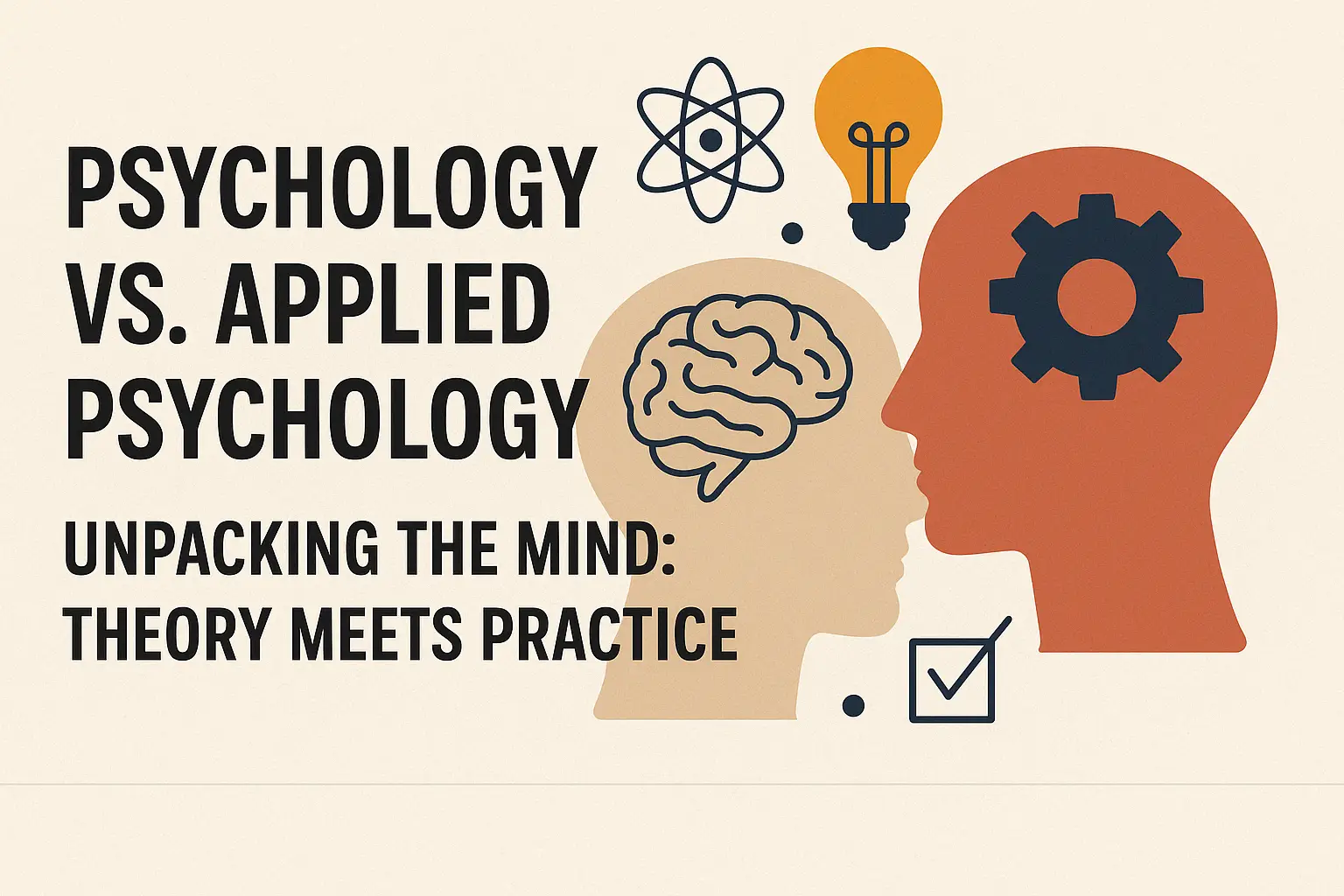Table of Contents
The MSc in Counselling Psychology is an advanced academic programme designed to equip students with the knowledge and skills required to become professional psychologists and counsellors. Graduates are prepared to practise independently or as part of a clinical, educational, or institutional setting.
Psychology, at its core, is the study of how individuals and communities think, perceive, and behave. It seeks to understand the cognitive, emotional, and social processes that shape human actions. The roots of psychology can be traced back to philosophy, but it formally emerged as a scientific discipline in the late 19th century. Two key figures—William Wundt in Germany and William James in the United States—played pivotal roles in establishing psychology as an independent field of study during the 1890s.
The Evolution & Impact of Counselling Psychology
Since its establishment, psychology has evolved continuously over the past century, and the 21st-century study of psychology and practice leans more towards scientific and sociological understanding of every subject. The first centre for Counselling Psychology was established by the father of the guidance movement, Frank Parsons, in 1909, in Boston. The field of psychology has ever since been transformed into an actual medical and mental care model, which was then adopted by other institutions.
The principles of counselling psychology are based on several factors, including guidance and counselling. Like a typical healthcare practitioner, mental health guidance counsellors also inquire about patients on their problems, evaluate their mental conditioning, and try to provide solutions through therapy or medications.
MSc Counselling Psychology: Complete Course Overview
The MSc in Counselling Psychology is thoughtfully designed for students who aspire to begin professional practice immediately after graduation. Counselling psychology, as a discipline, is centred on training actively practising counsellors who are equipped to consider complex social factors such as economic conditions, gender roles, cultural dynamics, and social stability in their work.
At the Jindal School of Psychology & Counselling (JSPC), the MSc Counselling Psychology programme is structured around four key components: theory, practical training, electives, and research. The theoretical foundation includes essential subjects such as counselling skills, psychotherapy approaches, psychopathology, research methodology, multicultural counselling, reflective practices, lifespan development, ethics, supervisory techniques, and self-care.

JSPC follows a rotational training model that gives students hands-on exposure to diverse professional settings. This includes on-campus training, community engagement, fieldwork in schools, and real-world problem-solving under the mentorship of experienced faculty and industry experts. To further enhance critical thinking and reflective practice, each student undertakes an independent research project. Additionally, the programme offers a range of relevant elective courses, allowing students to integrate interdisciplinary perspectives into their core learning.
The MSc in Counselling Psychology at JSPC is a full-time, two-year certified programme that prepares students to meet the demands of the counselling profession with confidence, competence, and compassion.
The Benefits of Obtaining an MSc Degree in Counselling Psychology
The healthcare profession is fundamentally rooted in the desire to help others—and counselling psychology is no exception. The practice of offering counsel has existed across human societies for centuries. Modern counselling psychology builds upon this tradition, evolving into a professional field dedicated to supporting individuals experiencing psychological and emotional distress.
Counselling is widely regarded as a noble profession, with its primary aim being to guide individuals and communities toward healthier, more meaningful lives. Human beings naturally experience a wide range of emotions, and suffering is an inherent part of the human condition. Counselling not only helps individuals manage these emotional challenges, but also plays a vital role in improving overall mood, mental well-being, and resilience.
Eligibility, Selection Process & Career Options for MSc in Counselling Psychology at JSPC
The eligibility criterion for the MSc Counselling Psychology programme at JSPC demands a successful completion of a Bachelors in any stream of psychology from a recognised university in India or abroad with minimum 50% score. JSPC follows a three-stage admission process which includes evaluation of application form and personal statement; online entrance test scores (PMAT) or score of listed national and international entrance test; lastly, personal interview.
The cutting-edge course structure, heavily based on practicals, enables students to confidently search the job market and look for various employment opportunities. These degree-holders can practice counselling in schools, community centres, hospitals, private chambers and even continue researching. If you want to advance your skills in psychological counselling, be sure to check out courses offered by JSPC.





